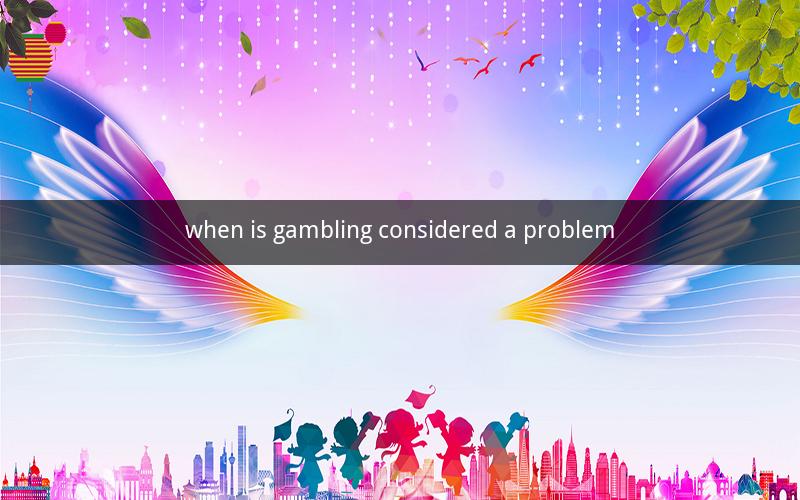
Table of Contents
1. Introduction to Problem Gambling
2. Signs and Symptoms of Problem Gambling
3. The Impact of Problem Gambling
4. Risk Factors and Causes
5. Treatment and Support
6. Prevention Strategies
7. Conclusion
1. Introduction to Problem Gambling
Gambling, as a form of entertainment, has been around for centuries. While many people engage in gambling without any issues, there are those who develop a problematic relationship with it. Determining when gambling becomes a problem can be challenging, as it often progresses gradually. This article aims to explore the signs, symptoms, and consequences of problem gambling, as well as the risk factors, treatment options, and prevention strategies.
2. Signs and Symptoms of Problem Gambling
Identifying problem gambling can be difficult, as it often manifests in subtle ways. The following signs and symptoms may indicate that gambling has become a problem:
- Increased time spent gambling, even when it causes stress or conflicts
- Trying to stop or cut back on gambling, but being unable to
- Lying about gambling activities to friends, family, or employers
- Borrowing money or selling possessions to fund gambling
- Neglecting responsibilities at home, work, or school due to gambling
- Experiencing physical symptoms, such as headaches, anxiety, or insomnia, as a result of gambling
- Engaging in risky or impulsive gambling behavior, such as chasing losses
3. The Impact of Problem Gambling
Problem gambling can have devastating consequences on individuals, families, and communities. Some of the most common impacts include:
- Financial problems, including debt and bankruptcy
- Relationship issues, such as infidelity, domestic violence, and divorce
- Legal problems, such as theft, fraud, or embezzlement
- Mental health issues, such as depression, anxiety, and substance abuse
- Physical health issues, such as heart disease, stroke, and addiction-related diseases
4. Risk Factors and Causes
Several factors can contribute to the development of problem gambling. Some of the most common risk factors include:
- Family history of gambling problems
- Mental health issues, such as depression, anxiety, or personality disorders
- Stress, trauma, or other life challenges
- Access to gambling opportunities, such as casinos, online gambling sites, or lottery tickets
- Peer pressure or social influence
5. Treatment and Support
Treatment for problem gambling often involves a combination of therapy, support groups, and lifestyle changes. Some common treatment approaches include:
- Cognitive-behavioral therapy (CBT), which helps individuals identify and change negative thought patterns and behaviors
- Family therapy, which helps address the impact of gambling on family members
- Support groups, such as Gamblers Anonymous or Gam-Anon
- Medications, in some cases, to address underlying mental health issues
6. Prevention Strategies
Preventing problem gambling involves addressing both the individual and environmental factors that contribute to its development. Some effective prevention strategies include:
- Increasing public awareness about the risks of problem gambling
- Implementing responsible gambling policies and regulations
- Providing education on gambling and its potential risks
- Encouraging individuals to seek help if they suspect they may have a problem
7. Conclusion
Problem gambling can have serious consequences for individuals and their loved ones. Identifying the signs and symptoms of problem gambling, understanding the risk factors, and seeking treatment and support are essential steps in addressing this issue. By promoting awareness, implementing prevention strategies, and providing resources for those in need, we can help reduce the prevalence of problem gambling and support those who are struggling.
---
Questions and Answers
1. What are some common signs of problem gambling?
- Common signs include increased time spent gambling, lying about gambling activities, neglecting responsibilities, and experiencing physical symptoms such as headaches or anxiety.
2. Can problem gambling lead to financial problems?
- Yes, problem gambling can lead to financial problems, including debt and bankruptcy.
3. Are there any treatments available for problem gambling?
- Yes, treatment options include cognitive-behavioral therapy, family therapy, support groups, and medications for underlying mental health issues.
4. What are some risk factors for developing problem gambling?
- Risk factors include family history, mental health issues, stress or trauma, access to gambling opportunities, and peer pressure.
5. How can I tell if my friend or family member has a problem with gambling?
- Look for signs such as increased time spent gambling, lying about gambling activities, neglecting responsibilities, and experiencing physical symptoms.
6. Are there any support groups available for individuals with problem gambling?
- Yes, support groups such as Gamblers Anonymous and Gam-Anon provide support and resources for individuals struggling with problem gambling.
7. Can problem gambling lead to legal problems?
- Yes, problem gambling can lead to legal problems, such as theft, fraud, or embezzlement.
8. What is the impact of problem gambling on mental health?
- Problem gambling can lead to mental health issues such as depression, anxiety, and substance abuse.
9. Are there any prevention strategies for problem gambling?
- Yes, prevention strategies include increasing public awareness, implementing responsible gambling policies, and providing education on gambling risks.
10. How can I help someone who may have a problem with gambling?
- Encourage them to seek help, provide support, and educate yourself on problem gambling to better understand the situation and offer assistance.